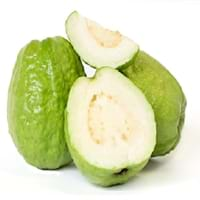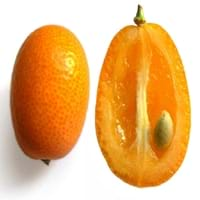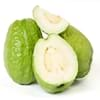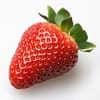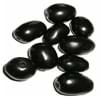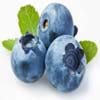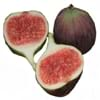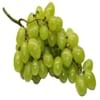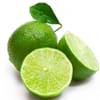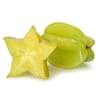Health Benefits
Cancer prevention, Diarrhea treatment, Prevents constipation, Scurvy treatment, Treatment of dysentary
Cancer prevention, Cures gastro-intestinal troubles, Heart care, Increase in haemoglobin, Increases metabolic rate
General Benefits
Controls blood pressure, Cures cough, Improves eye vision, Maintains healthy cholesterol level, Treatment of common cold
Anti oxidant properties, Anti-inflammatory properties, Healing of wounds, Helps in weight loss, Strengthens bones
Skin Benefits
Anti-aging benefits, Brightens and lightens complexion, Hydrates skin, Treatment of skin diseases
Anti-aging benefits, Reduces wrinkles, Treatment of dark spots
Hair Benefits
Prevents hair loss
Promotes longer and healthier hair, Protects hair, Shiny hair
Allergy Symptoms
Breathing difficulty, Coughing, Runny nose, Sneezing, Swelling of mouth, tongue or lips, Wheezing
Abdominal pains, Coughing, Diarrhea, Digestive Problems, Drop in blood pressure, Hives, Itching, Nausea, Tingling sensation in wrist and face, Vomiting, Wheezing
Side Effects
Hair thinning, Nail thinning, Skin problems, Tooth decay, Weakness, Possibly unsafe during pregnancy
Allergic reaction
Best Time to Eat
As a snack in the late afternoon, Don't consume at night and before bed, Eat the fresh ones, avoid mixing with any other foods, don't eat after meal., Morning time (before lunch)
As a snack in the late afternoon, Don't consume at night and before bed, Eat the fresh ones, avoid mixing with any other foods, don't eat after meal., Morning time (before lunch), Strictly avoid empty stomach
Vitamin B5 (Pantothenic Acid)
Vitamin C (Ascorbic Acid)
Vitamin K (Phyllochinone)
Calories in Fresh Fruit with Peel
Calories in Fresh Fruit without Peel
Not Available
Not Available
Calories in Frozen Form
Not Available
Not Available
Calories in Dried Form
Not Available
Calories in Canned Form
Not Available
Type
Tree fruit, Tropical
Citrus
Season
All seasons
Autumn, Winter
Varieties
Lucknow 49, Allahabad Safeda, Chittidar, Harijha, Apple guava, Hafshi, Arka Mridula and Allahabad Surkha
Hong Kong, Marumi, Meiwa, Centenniel and Nagami
Color
Green, Pink, Yellow
Orange, Red, Yellow
Inside Color
White
Orange
Taste
Sweet-Sour
Sweet, Tart
Origin
Central America, Mexico, South America
China
Soil Type
Loam, Rocky, Sandy
Clay, Sandy loam, Well-drained
Climatic Conditions
Sunny
Cold, Warm
Facts about
- The black pigment in Guava leaves is used for textile applications.
- Guava leaves are used to make tea.
- Oils extracted from guava seeds are used in various cosmetics.
- Guava wood is used for decorative purposes.
- The entire kumquat fruit is edible, except few seeds.
- The taste of kumquat skin is sweet while inner flesh is tart.
- There are some hybrid varieties of kumquats such as mandarinquats, orangequats and limequats.
Other Countries
China, Indonesia, Mexico, Nigeria, Pakistan, Philippines, Thailand
Brazil, Mexico, Spain, United States of America
Top Importer
Canada
United Kingdom
Botanical Name
Psidium guajava
Citrus japonica
Synonym
Not Available
Fortunella margarita
Subkingdom
Tracheobionta
Tracheobionta
Division
Magnoliophyta
Magnoliophyta
Class
Magnoliopsida
Magnoliopsida
Order
Myrtales
Sapindales
Family
Myrtaceae
Rutaceae
Species
Psidium guajava
C. japonica
Generic Group
Myrtle
Citrus fruit
Compare Guava and Kumquat
It is important compare Guava and Kumquat as both the fruits have a different nutritional value. Their comparison can be done on the basis of their vitamin and mineral content, calories, benefits as well as characteristics, making it easier for us to choose the best fruit for our diet. Their general health benefits are as follows:
Guava Benefits: controls blood pressure, cures cough, improves eye vision, maintains healthy cholesterol level and treatment of common cold.
Kumquat Benefits: anti oxidant properties, anti-inflammatory properties, healing of wounds, helps in weight loss and strengthens bones.
Fruits are also used as a remedy for various hair problems. The hair benefits of Guava are: prevents hair loss and hair benefits of Kumquat are: promotes longer and healthier hair, protects hair and shiny hair. Some fruits are known to cause allergic reactions. The allergy symptoms of first fruit are: breathing difficulty, coughing, runny nose, sneezing, swelling of mouth tongue or lips and wheezing and the symptoms of second fruit are: abdominal pains, coughing, diarrhea, digestive problems, drop in blood pressure, hives, itching, nausea, tingling sensation in wrist and face, vomiting and wheezing. Get sorted Guava vs Kumquat comparison with the help of fruit comparison tool by fruitvs.com.
